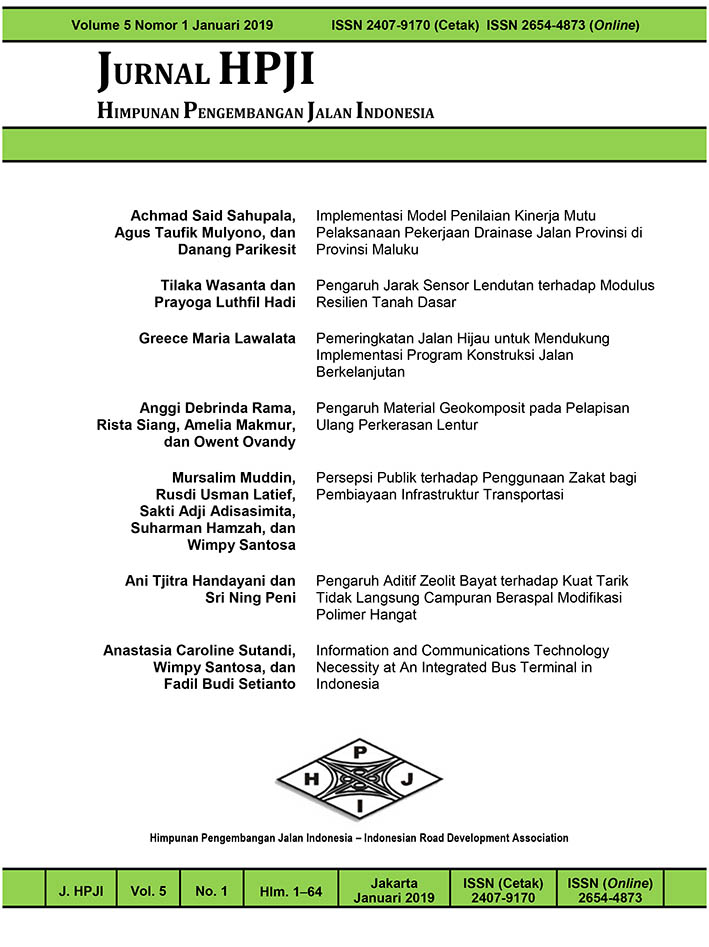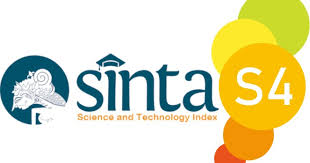INFORMATION AND COMMUNICATIONS TECHNOLOGY NECESSITY AT AN INTEGRATED BUS TERMINAL IN INDONESIA
DOI:
https://doi.org/10.26593/jh.v5i1.3202.%25pAbstrak
Abstract
The integrated bus terminal as a part of public transportation infrastructure needs to be equipped with the application of communication and information technology, to meet and improve passenger service standards and terminal operational standards. This study aims to evaluate the availability and application of communication and information technology in integrated bus terminals in serving passengers. Based on existing conditions, it is recommended to enhance the application of communication and information technology to improve service to the community. A case study was carried out at the Pulo Gebang integrated bus terminal in Cakung, East Jakarta. Primary data was obtained by using questionnaires and secondary data, namely the number of passengers, the number of bus routes, and the application of communication and information technology, were obtained from the website of the Jakarta Transportation Agency. The analysis results show that the application of communication and information technology is indispensable in integrated bus terminals. In more detail, it was found that the application of communication and information technology in the terminal, with regard to booking tickets through the website or online and the availability of self-ticketing in the terminal, was the most important thing for bus passengers.
Keywords: integrated bus terminal, information and communication, public transportation
Abstrak
Terminal bus terpadu, sebagai bagian prasarana transportasi publik, perlu dilengkapi dengan penerapan teknologi komunikasi dan informasi, untuk memenuhi dan meningkatkan standar pelayanan penumpang dan standar operasional terminal. Studi ini bertujuan untuk mengevaluasi ketersediaan dan penerapan teknologi komunikasi dan informasi di terminal bus terpadu dalam melayani penumpang. Berdasarkan kondisi eksisting, direkomendasikan perbaikan penerapan teknologi komunikasi dan informasi untuk meningkatkan pelayanan kepada masyarakat. Studi kasus dilakukan di terminal terpadu Pulo Gebang di Cakung, Jakarta Timur. Data primer diperoleh dengan menggunakan kuesioner dan data sekunder, yaitu jumlah penumpang, jumlah rute bus, serta aplikasi teknologi komunikasi dan informasi, diperoleh dari laman Dinas Perhubungan Daerah Khusus Ibukota Jakarta. Hasil analisis menunjukkan bahwa penerapan teknologi komunikasi dan informasi sangat diperlukan di terminal bus terpadu. Secara lebih detail diperoleh bahwa penerapan teknologi komunikasi dan informasi di terminal, berkenaan dengan pemesanan tiket melalui website atau online serta ketersediaan self-ticketing di terminal merupakan hal terpenting bagi penumpang bus.
Kata-kata kunci: terminal bus terpadu, teknologi komunikasi dan informasi, transportasi publik








